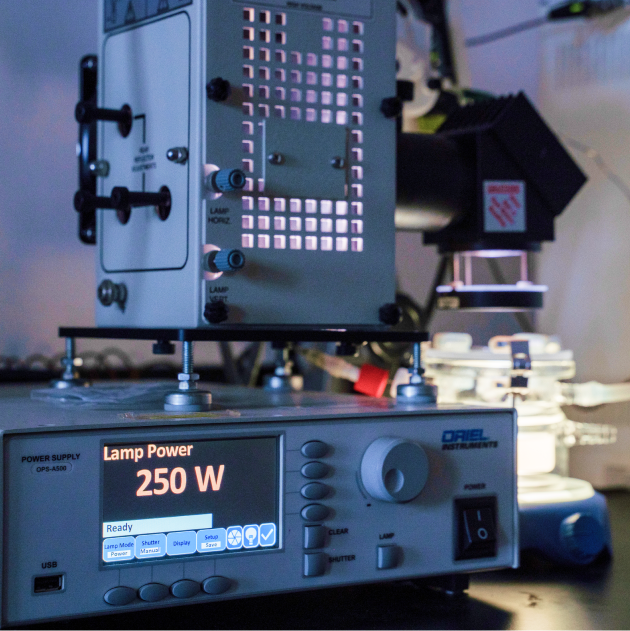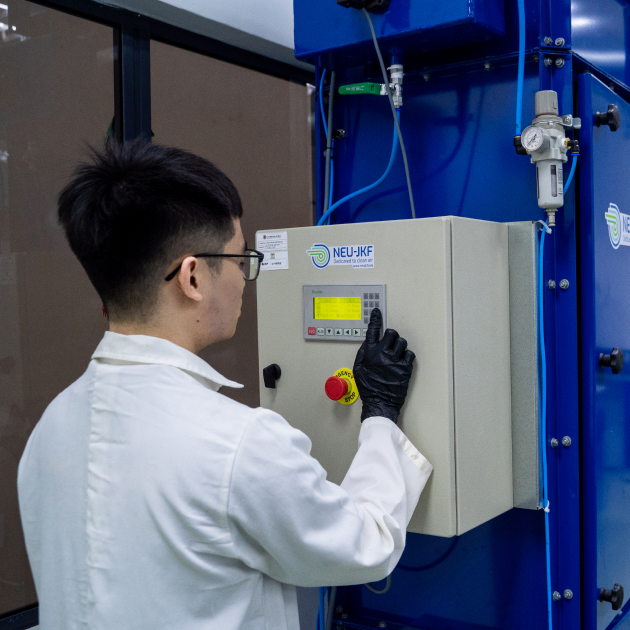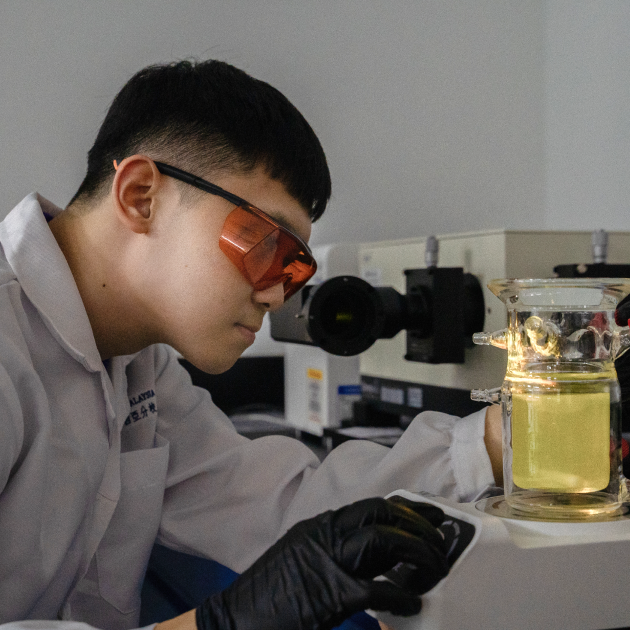
Engineering the Future: Exploring New Energy Science and Engineering
The New Energy Science and Engineering (NESE) programme focuses on creating efficient, safe, eco-friendly, and cost-effective solutions for energy generation, conversion, transportation, storage, and application. Its primary goal is to enhance efficiency while minimizing negative impacts on humans, nature, and the environment. Investing in alternative energy sources is vital to addressing environmental challenges, strengthening energy security, driving economic development, and safeguarding public health for current and future generations.
What sets NESE apart is its unique approach to integrating fundamental science with real-world applications. Students are introduced to cutting-edge technologies in alternative energy, underpinned by strong engineering principles. The programme equips them with the knowledge and skills needed to become adaptable professionals with deep expertise, ready to excel in energy-related industries or adjacent fields such as semiconductors, manufacturing, artificial intelligence, and consultancy.
Supported by a Strong Faculty, Researchers, and Engineering Experts
The NESE programme is supported by a distinguished faculty comprising leading researchers and engineering experts specializing in clean chemical energy, solar and wind energy, bioenergy, energy economics, energy storage, and energy efficiency engineering. These experts are committed to high-quality research and development in energy science and technology, complemented by essential knowledge in electronics and mechanical engineering.


Developing Highly Flexible Professionals
Our programme at Xiamen University Malaysia aims to develop highly flexible professionals with solid specialty knowledge, who are ready for employment in energy related industries or for pursuing scholastic endeavors in the same or related fields. At the end of the programme, students will be equipped with core theoretical knowledge and practical skills for the analysis, modelling, evaluation, design, development, and implementation of energy technology.

Programme Highlights
- A world-leading programme which produces well-trained professionals who are able to devise strategies to counter the global energy crisis by promoting the use of efficient, clean, renewable, and sustainable energy technologies.
- A customised programme which benefits from the vast Chinese experience in energy technology research and development.
- A close cooperation with leading overseas universities and major industry players which ensures up-to-date appreciation of energy technology developments and research direction.

Duration
4 yearsIntakes
February/April/SeptemberMedium of Instruction
EnglishFees
RM27,000 per year (Malaysian); RM28,000 per year (International)LEARN MORE for miscellaneous fee of this programme
Brochure
View MoreThe PEOs are to produce graduates who: -
- Demonstrate high level of competency in knowledge of science, engineering and technological capabilities in solving present and prospective problems related to energy domains.
- Deliver a myriad of soft skills to various stakeholders and practice their professionalism with high regard to societal benefits, ethical, and entrepreneurial possibilities in multicultural working environment.
- Possess self-awareness in engaging lifelong learning, pursue postgraduates studies or participate in continual professional development.
At the end of the programme, graduates will be able to:
- Knowledge and Understanding - Present comprehensive theoretical and technical knowledge in science and engineering within energy domains.
- Cognitive Skills - Apply knowledge and critical, analytical and evaluation skills to solve problems in the energy related field.
- Practical Skills - Utilize practical skills to solve a broad range of complex problems in science and engineering.
- Interpersonal Skills - Perform collaborative works with various personnel in diverse learning and working environments locally and internationally.
- Communication Skills - Communicate effectively both in oral and writing to a diversity of audience.
- Digital Skills - Use appropriate information or digital technologies to perform study and support the need of work in the field of specialization.
- Numeracy Skills - Perform numerical analysis or interpret data with graphical/visual aids for the purpose of study or accomplishment in the workplace.
- Leadership, Autonomy and Responsibility - Demonstrate characteristics of team leader/player in managing responsibilities, decision making capacities or accountabilities within organization.
- Personal Skills - Engage in self-directed lifelong learning and be prepared to continually build upon knowledge and acquired skills for professional development.
- Entrepreneurial Skills - Demonstrate entrepreneurial thinking skills and competency in a multidisciplinary environment.
- Ethics and Professionalism - Practice adherence and compliance to ethical, environmental and professional values to the contribution for sustainable development locally and internationally.
The minimum credit amount required for graduation is 145 credits. The breakdown of this credit value is as shown in Table 1.
Table 1: Components of the Programme and their Corresponding Minimum Credit Values
Bachelor of Engineering in New Energy Science and Engineering (Honours) | |||
|---|---|---|---|
1 | Compulsory courses/modules* | ||
| Compulsory - Mata Pelajaran Umum (MPU) | |||
| Compulsory - University | |||
2 | |||
| Common Core | |||
3 | Optional/elective courses****: | ||
| General Elective | |||
4 | Minor courses (if applicable) | ||
5 | Industrial training/Practicum | ||
6 | |||
Terminology Explanation:
Compulsory Courses - MPU: Mata Pelajaran Pengajian Umum (MPU) courses are recommended by the Ministry of Higher Education (MoHE) to cultivate an appreciation for the Philosophy, Values and History of Malaysia.
Major Core Courses: Courses designed to meet the core educational objectives. Each major core course has its own features.
Common Core Courses: Essential courses offered for students from different majors but in the same discipline.
Major Elective Courses: Courses designed to help students to identify their field of interest or direction within the major. This will enable them to be better prepared for their career pathways.
General Elective Courses: Courses designed to give students options outside their major-related courses. For example, students in the business field are encouraged to take courses in the Arts and Science fields to diversify their scope of knowledge.
Energy Generation
This category focuses on developing and managing systems to produce renewable and sustainable energy.
Clean Energy and Renewable Energy Industry
Specialization: Renewable energy engineer, solar energy specialist, hydrogen energy specialist & bioenergy/ biofuel scientist, etc.
Energy Storage
This category focuses on innovating storage solutions to enhance the reliability and scalability of renewable energy systems.
Energy Storage and Materials Development Industry
Specialization: Batteries, supercapacitors, hydrogen storage specialist, energy materials scientist/specialist, etc.
Energy Utilization and Applications
This category is focused on optimizing energy use and developing systems to reduce waste and improve sustainability.
Energy Management and Semiconductor IndustrySpecialization: Energy management expert, semiconductor power electronics specialist, artificial intelligence expert, carbon capture and storage (CCS) expert, energy industrial optimization, etc.
Please refer to: https://www.xmu.edu.my/14693/list.htm

